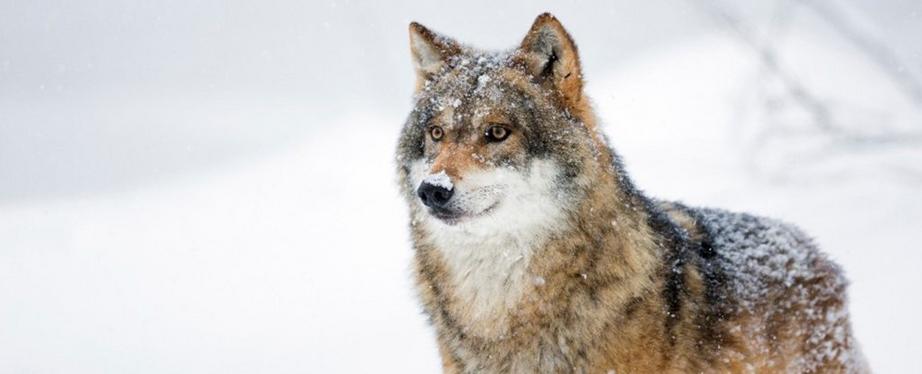After more than 100 years, wild wolves are finally returning to Belgium
The last European country to get them back.
It's not hard to find worrying stories about the state of our planet's wildlife, so it's refreshing to hear news with a more positive spin: a wild wolf has been spotted in Belgium for the first time in over a century.
Having been driven from much of western Europe through a combination of hunting, increased industrialisation, and wider urban sprawl, these animals are now making a comeback across the continent. Belgium is the last mainland country to have reported such a sighting in recent years.

Thanks to an electronic tag previously fitted to the wolf, we know it's travelled hundreds of kilometres, through Germany and the Netherlands, before arriving in Belgium, and more wolves may now follow.
"In recent days the wolf has stayed near the Flemish town of Beringen and the military base at Leopoldsburg," says Belgian environmental group Landschap. "The animal has covered 500 kilometres (300 miles) in ten days."
However, not everyone is celebrating – farmers in France, Spain, and Italy are worried about the threat these predators pose to their livestock.

For environmental and biodiversity campaigners, though, the news is definitely good. In 1979 the Bern Convention on the Conservation of European Wildlife and Natural Habitats listed the wolf as a "a fundamental element of our natural European heritage".
One compromise might be to have governments compensate farmers for lost livestock if it means wolf populations can be established again.
Although this is the first confirmed sighting of a wolf in Belgium since the start of the 20th century, video cameras had previous captured images of what was probably a wolf in the Ardennes region of southern Belgium in 2011.
That sighting was never verified but it's another suggestion that the wolf population is slowly growing and spreading across Europe.

A few hundred years ago though, wolves were public enemy number one in Europe, with protecting sheep for their meat and wool a much higher priority. King Edward I of England, who took the throne at the end of the 13th century, ordered the complete extermination of the animals.
Wolves haven't yet returned to Great Britain, but in countries like Poland their numbers are doubling. For conservationists, it's important that wolf populations are allowed to grow, even with the associated dangers.
"Natural predators balance the ecosystem," biologist Robert Mysłajek, from the University of Warsaw in Poland, told Alex Duval Smith from The Guardian in 2016. "They keep herbivores in check, thus allowing trees to grow tall for birds to nest in."
The wolf recovery remains a fragile one: there remains opposition to their re-emergence among the European public and governments, as well as fears of attacks on humans – something which many experts think won't be a problem.
"Wolves stay away from humans," Mysłajek told The Guardian. "They have a tremendously sensitive sense of smell."

